Rewilding Spain promotes the restoration of ecosystems with the successful arrival in Villanueva de Alcorón (Guadalajara) of 16 Przewalski’s horses, considered the only wild horses remaining in the world.
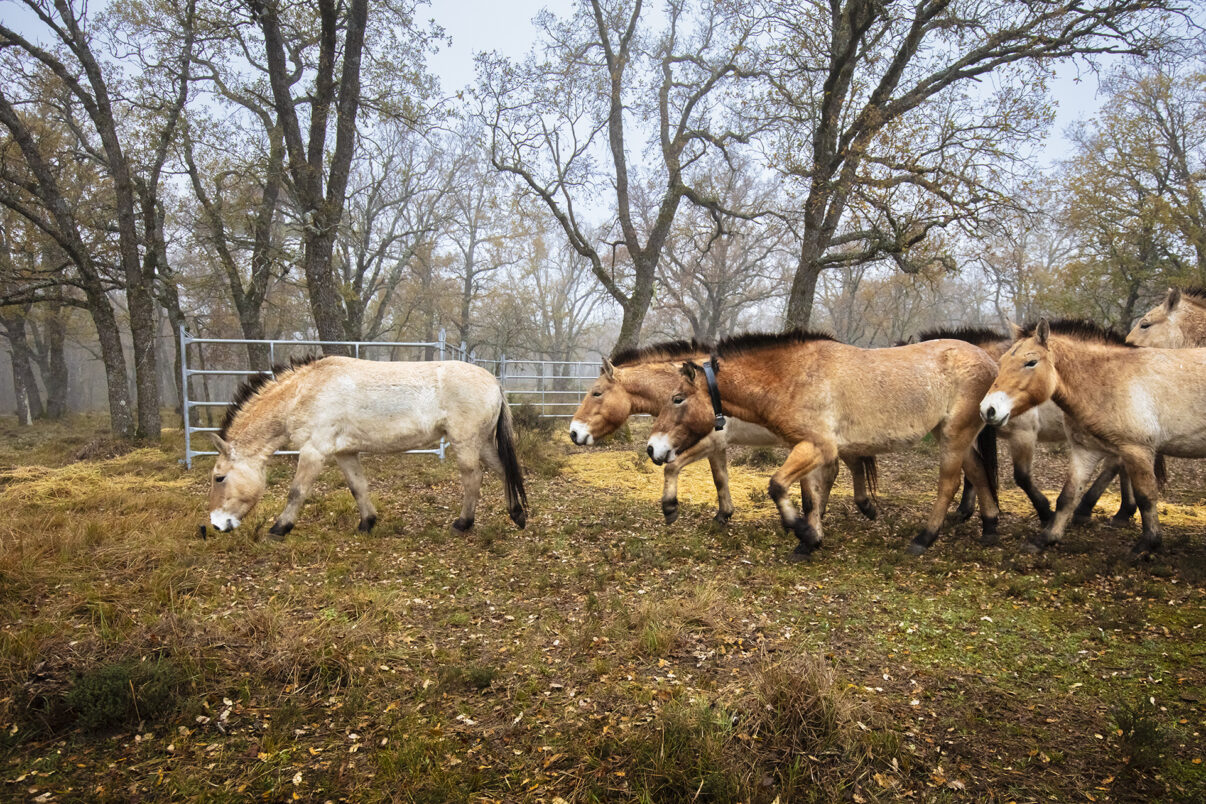
After the disappearance of the traditional extensive livestock farming with horses and cows in the Alto Tajo (High Tagus river) area, the natural grazing of these Przewalski’s horses that have arrived in Villanueva de Alcorón will fulfil an essential role for the restoration of healthy ecosystems, as they will contribute to reduce the risk of wildfires and enhance biodiversity. In addition, their feeding and movements on the field will increase the quality of the pasture for other herbivores that inhabit this area, such as deer, roe deer and fallow deer. Even domestic sheep and goats also grazing in the area will benefit from this improvement.
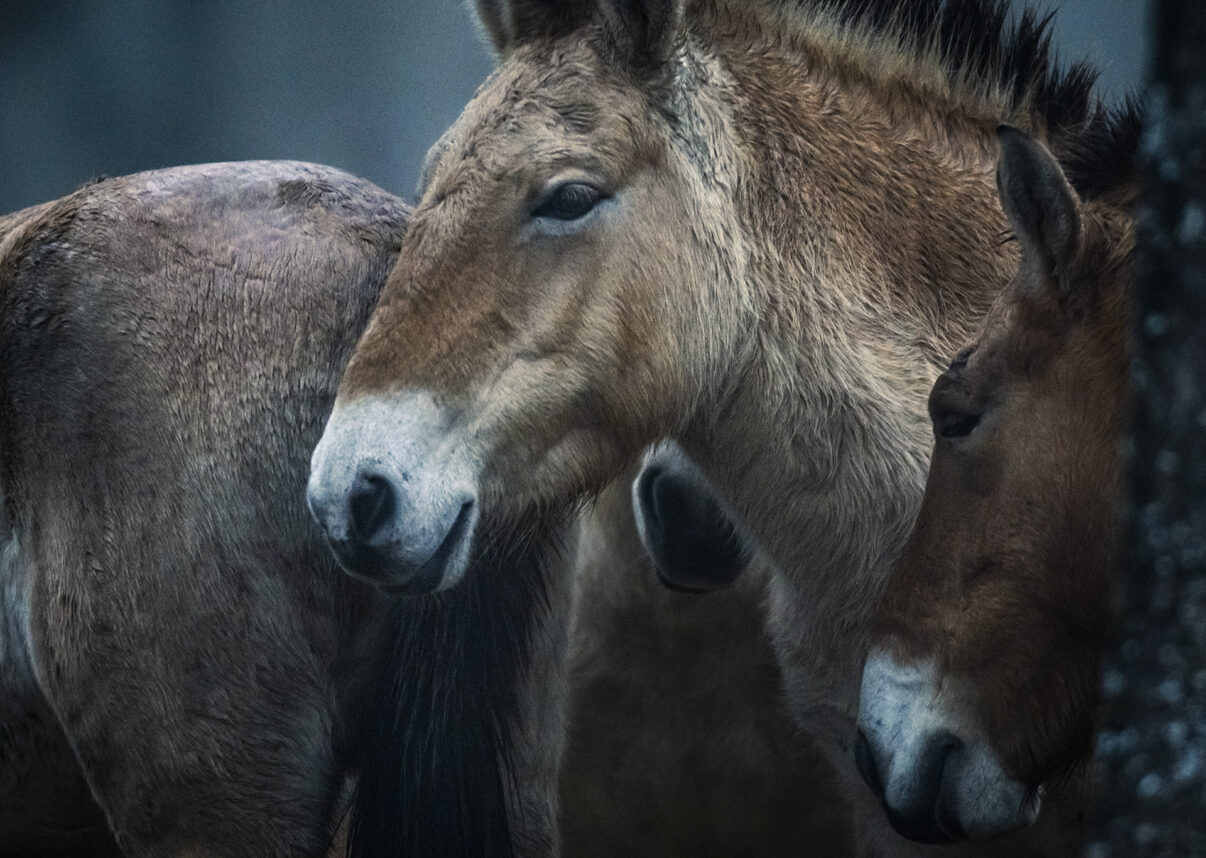
Przewalski’s horses (Equus ferus przewalskii) are considered the last remaining wild horses in the world and are an endangered subspecies that attracts the interest of both scientists and nature lovers. From now onwards, there is a special place to add to their visit agenda after the successful arrival of 16 Przewalski’s horses in the municipality of Villanueva de Alcorón, located in the Alto Tajo region (Guadalajara province). This action is part of the Iberian Highlands rewilding initiative that is led on the ground by Rewilding Spain.
The recently arrived Przewalski’s horses (4 males and 12 females) come from the Hortobágyi National Park (Hungary) and have joined a first group of ten horses brought to the same area last May, with which the good adaptation of this subspecies to the territory has been verified.
The Hortobágy National Park, in a unique way in Hungary, has been keeping Przewalski’s horses since 1997 and helping several rewilding projects with its population of 300 individuals.
An opportunity for ecotourism and conservation
The newly arrived animals will spend a few weeks of adaptation in a 40-hectare fenced area and after this period, the total of the 28 specimens that now make up the herd will roam freely through an area of 5,700 hectares of public forest in Villanueva de Alcorón, whose grazing rights are managed by Rewilding Spain. These forests will become the first place in Western Europe where Przewalski horses will roam freely in the wild.
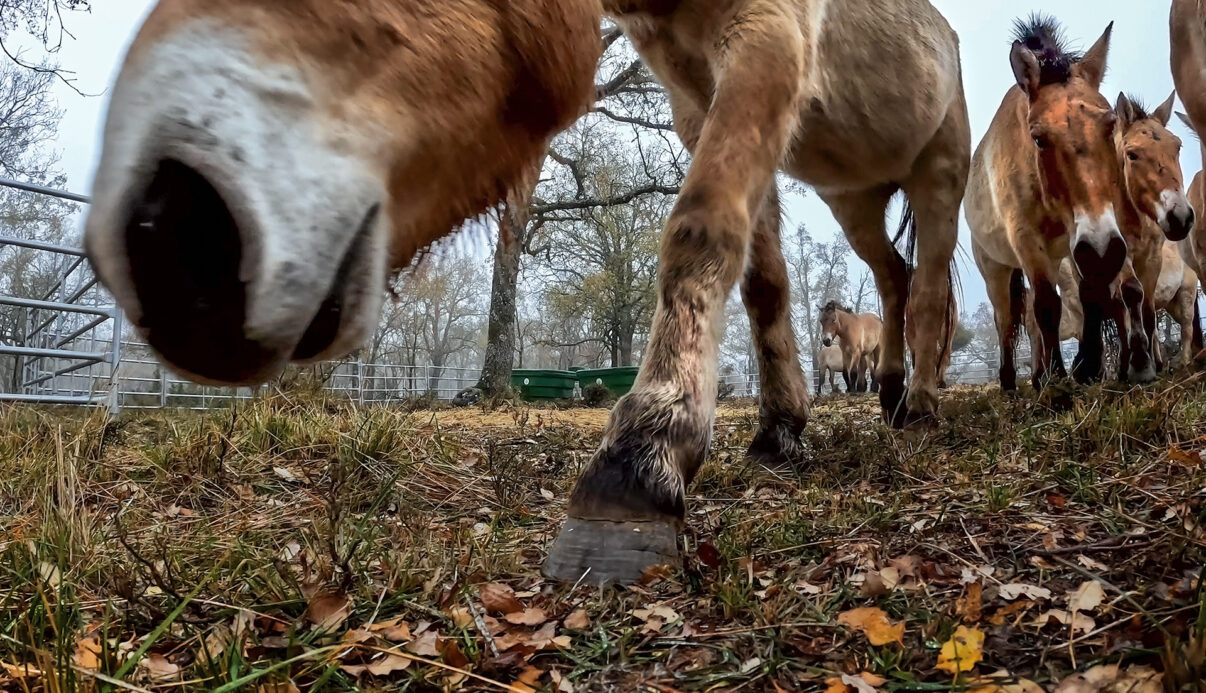
In addition to the ecological benefits for the territory, this rewilding action also provides an opportunity for ecotourism and the development of nature-based activities. Furthermore, the presence of Przewalski’s horses in Villanueva de Alcorón will add a relevant contribution to the conservation of the subspecies, of which only barely 2,000 specimens remain.
The Iberian Peninsula was once roamed by wild horses with very similar physical features to Przewalski’s horses, as evidenced by engravings and cave paintings, such as those in Altamira. However, these disappeared around 4000 years ago. With livestock numbers in the Iberian Highlands landscape significantly diminished, the Przewalski’s horses will fulfil the same ecological role as the extinct Iberian wild horse and more contemporary domesticated herbivores.
Rewilding Spain also promotes natural grazing in other areas of the landscape with native semi-wild horse breeds, such as Pottokas and Serrano horses.
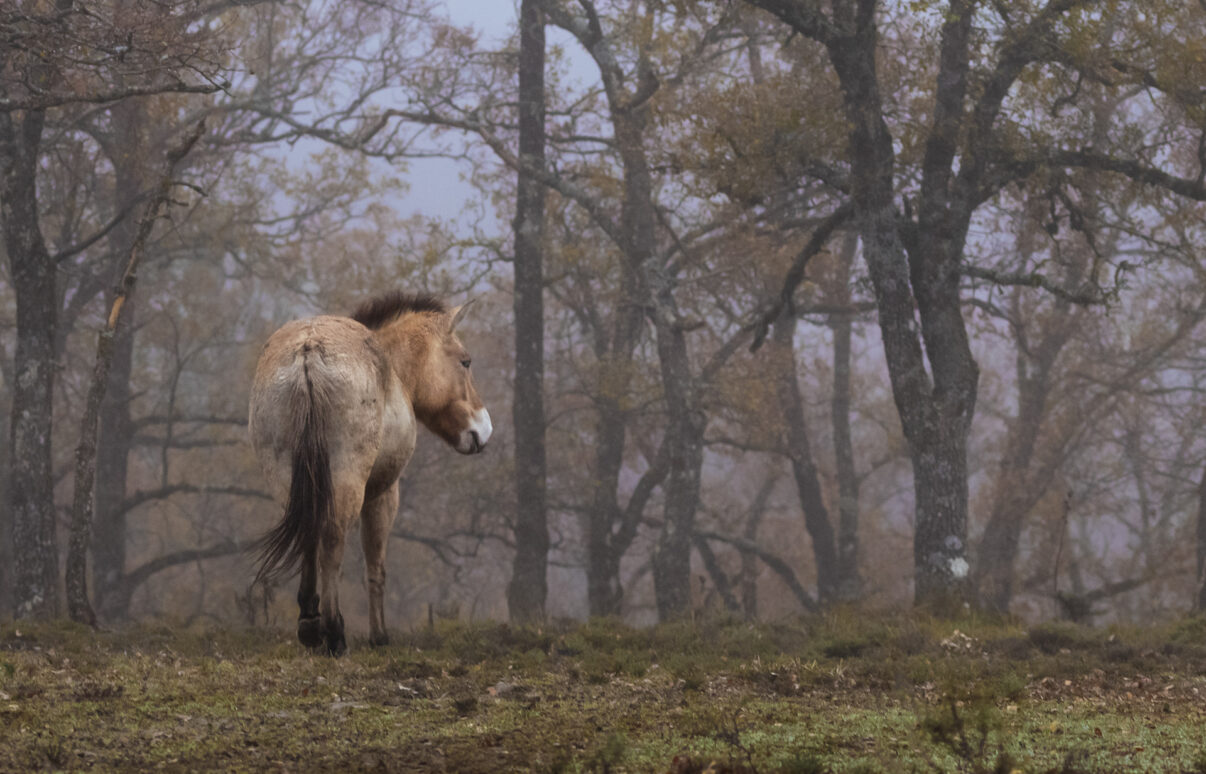
Benefits for nature, benefits for people
Both the public administrations and the inhabitants of Villanueva de Alcorón and surrounding municipalities have been informed about this action throughout the process that has now culminated.
Iberian Highlands’ team leader, Pablo Schapira, highlighted the importance of the ecological role of these large herbivores in the area: “These horses are going to contribute to making this landscape more heterogeneous and richer in terms of biodiversity, which is essential for reducing vulnerability to wildfires.”
In addition to the benefits for nature, Rewilding Spain is confident that the unique opportunity represented by the presence of Przewalski’s horses in Villanueva de Alcorón can also become a powerful driver for economic development. “We have already created two jobs for residents of Villanueva de Alcorón and we are convinced that the potential for ecotourism is huge, because this municipality has now become a unique place in Europe.”
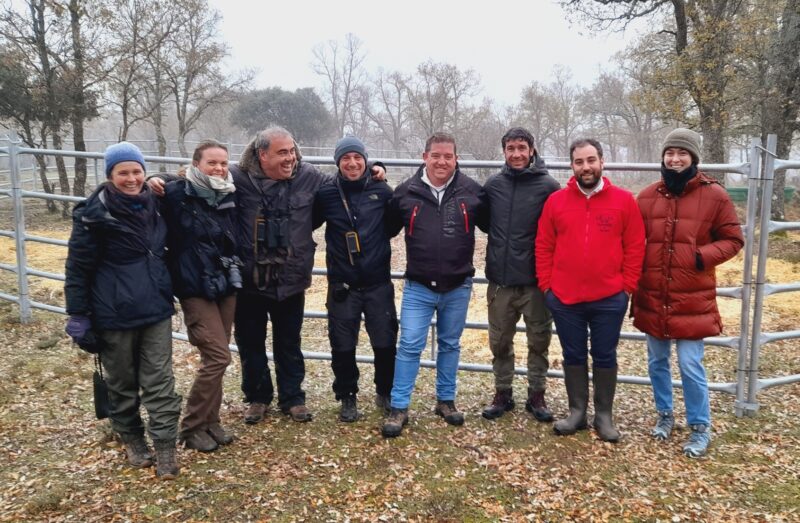
The mayor of Villanueva de Alcorón, Faustino Martínez, stated: “Having these horses is a milestone for us, as this is an endangered species and we have them in Villanueva de Alcorón in this pioneering experience in Spain. We believe it can be a strong point to support our economy, tourism and also for pastures regeneration. We are happy with this initiative proposed by Rewilding Spain and we will continue to support it as much as we can.”
Iberian Highlands rewilding initiative is being implemented with the support from Rewilding Europe and funding from The Endangered Landscapes Programme and Cartier for Nature Foundation.
